5 ways to tap into the mindfulness trend with technology
How to better care for yourself in the connected world
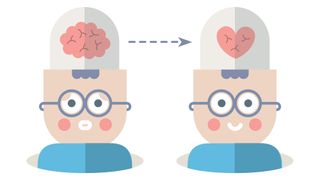
It may seem counter-intuitive, but technology can help play a significant part in encouraging mental wellbeing. It's not just meditation apps; it's thought journals, stress-trackers and even wearables which track sleep, heart-rates and sync all of the data to your phone, for better mindfulness of what’s making you tick.
With work being the biggest contributor to adult stress in the UK, and more children being affected by mental health issues than ever, it’s important to take care of yourself and those around you. By encouraging self-care, we can help young adults and families stay healthy, and better able to navigate the always-on digital culture we live in today.
To help with that first step towards a positive and healthy mindset, take a look at the gadgets and apps we've assembled below.
1. Headspace
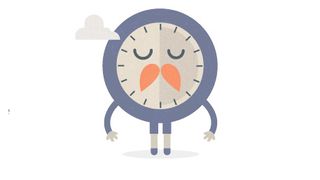
Having been given the seal of approval by the likes of Harry Potter star Emma Watson, UK-based app Headspace encourages a healthier and happier lifestyle through guided meditation.
Available on both iOS and Android, Headspace is billed as a ‘gym membership for the mind', and just like with all good gym memberships, comes with an introductory offer too good to pass up. Included with the initial free download are 10 daily meditations which last around 10 minutes each, and are appropriately bundled together as ‘Take 10’.
If after your induction to the world of wellbeing you wish to continue in your quest of ultimate zen, a paid subscription of £9.99 a month, or a discounted £74.99 annual fee, will allow you access to hundreds of hours of original content, with meditations ranging from two minutes to an hour. The slick interface enables users to track their progress; proving that a healthy lifestyle doesn’t always require being shouted at by a personal trainer.
2. Pip Stress Tracker
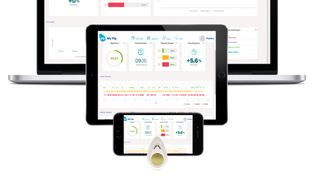
Designed to help you take control of your stress levels, the Pip Stress Tracker has its finger on the pulse when it comes to innovation.
Get daily insight, inspiration and deals in your inbox
Get the hottest deals available in your inbox plus news, reviews, opinion, analysis and more from the TechRadar team.
Unlike other wellness gadgets such as heart rate monitors and fitness trackers, the £159 Pip is held instead of worn, and uses gold-plated sensors to measure electrodermal activity, which is just a smart way of referring to the stress present in your sweat glands.
The palm-sized Pip measures in three stages: stress events, relax events and steady events. The data is then transmitted to one of five companion smartphone apps available on the iOS and Android stores, including The Loom, which uses images and sound to reduce your stress levels in real-time. Clarity, which features guided audio exercises in settings ranging from a park bench, to a rainstorm. Relax and Race, a gaming environment which encourages stress levels in an effort to teach you how to maintain calm. The Stress Tracker, which does exactly what it says on the tin, and finally My Pip, which pulls data from all of the other apps to one stress-free hub.
3. Withings Smart Body Analyzer
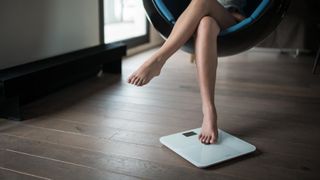
While on the surface the Withings Smart Body Analyzer might look like a futuristic upgrade on your old carpeted hand-me-down scales, not even the Jetsons’ bathroom would have seen a gadget quite like this.
Measuring heart rate and temperature, as well as body fat percentage and weight, the £99.99 Smart Body Analyzer uses Wi-Fi to sync data to your online account, so you can visually see all of your stats in one place.
This device also works alongside the versatile MyFitnessPal app, and even uses its calorie counter and Pulse activity tracker, meaning you can stay on top of your physical wellbeing on-the-go.
But while this all might really complex, the Smart Body Analyser is suitable for all levels of fitness, as well as technical abilities, and can also be used as a regular set of weighing scales. But with simple activation and set-up, and given that it is powered by just four AAA batteries which will last for months (even with daily use), the Withings Smart Body Analyzer will help you achieve peace of mind over your body.
4. Fitbit Flex

As far as fitness wearables go, Fitbit is up there when it comes to household names. But when it comes to maintaining a healthy lifestyle, making sure you have enough rest is just as important as getting enough exercise.
Widely noted for being among the most reliable activity-tracking devices on the market, the Fitbit Flex and Fitbit Flex 2 detect the direction and speed of motion using onboard accelerometers, and record the data to the companion app.
After an hour of inactivity, and if coupled with the types of movement you would make only during sleep (such as turning over), the Fitbit will go into sleep mode and begin to monitor your sleeping patterns. The device will automatically detect when you're awake based on activity and then exit sleep mode, but if for whatever reason you decide to return to bed, you can always delete the entry from the dashboard.
You can also set your morning alarm to go off during your lightest 30 minutes of sleep, as well as chart your progress with graphs to help improve your sleeping habits. All for the greater good of getting the best night’s rest possible – what better sense of wellbeing is there?
5. Moodnotes
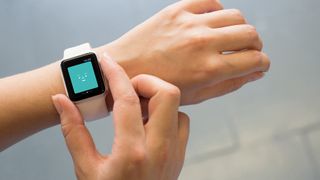
In an age where more people feel comfortable expressing themselves on social media than they do in person, it will come as no surprise to hear that mental health issues are at an all time high.
While measuring yourself against others’ edited social highlights may not be a fast-track to mental wellbeing, technology can actually be used as a productive way to learn from your daily stress-triggers, and de-stress.
Moodnotes is an app-based thought journal which allows users to enter daily activities, feelings and moods, in an effort to identify trends that will not only help avoid traps and increase self-awareness, but also encourage healthier thinking habits.
Each journal entry is associated with a mood, depicted by an interactive smiley face, and can be tracked via a ‘mood trend’ graph to help users break negative thinking patterns, and ultimately take control of their health and wellbeing.
At £2.99, it’s one of the cheapest ways to better mental wellbeing – and you don’t even have to put your phone down to get there.
This article is brought to you in association with Tesco Mobile
Most Popular

